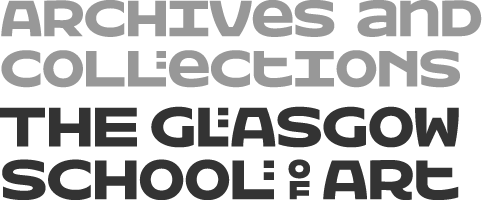A newly launched transcription tool from Tate and Zooniverse, AnnoTate invites the public to help decipher the writing found in over 17, 000 artists’ letters, diaries and sketchbooks.
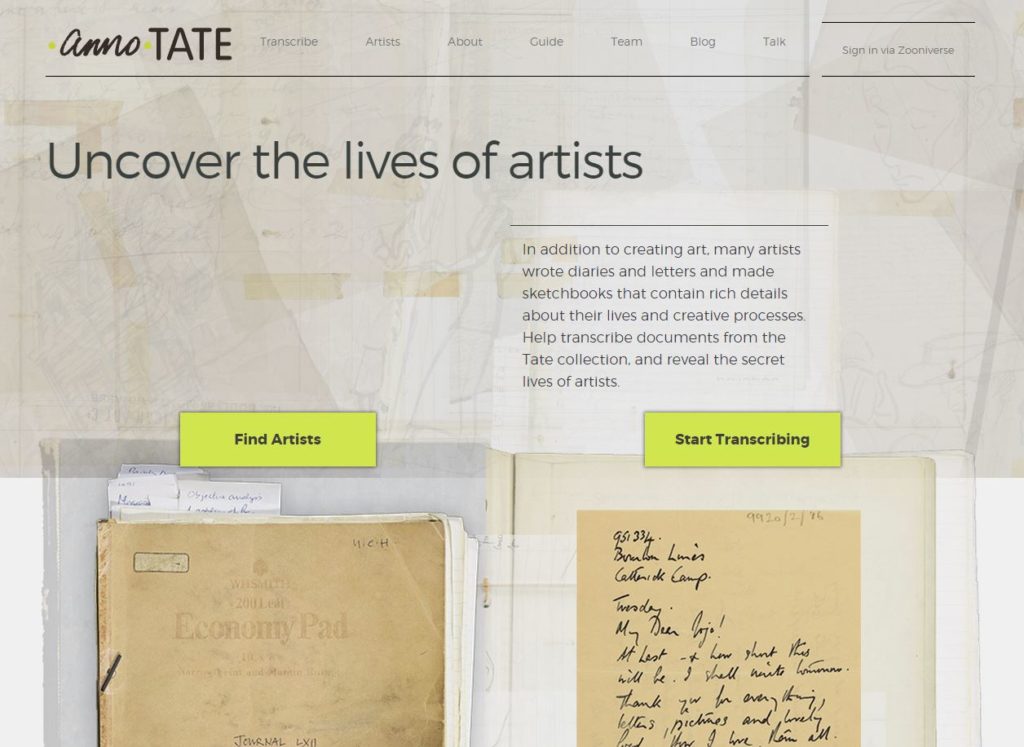
Working in an art archive, I have the delight of handling and working with a vast array of artworks ranging from paintings, to ceramics, to textiles and more; but a massive part of this work also includes dealing with those records that provide insight into an artists’ personal and working life such as handwritten letters, diaries and working notes. This type of material is a fascinating way to learn about a person’s character, their artistic process, the social context of the time and a great deal more, but it can also be the most frustrating part of the process because of illegible handwriting, discoloured texts and faded or damaged documents! AnnoTate is looking to assist with this difficult task (thank goodness) by tapping into the global internet community to help decipher these materials.
An online transcription tool developed to enable volunteers to read and transcribe the personal papers of British-born and émigré artists (including Barbara Hepworth, Josef Herman and Kurt Schwitters) from the Tate archive, participants will assist in creating full text transcriptions of these handwritten documents. Once a document has been fully transcribed and verified by Tate’s archivists, they will then be made available on Tate’s website alongside the original materials and will become accessible to anyone anywhere in the world with an internet connection.
Anyone who wants to transcribe these materials can begin in two ways: you can either jump straight in and choose ‘Start Transcribing’ which will allow you to work on randomised articles (this will present you with a quick introduction on how to get started); or you can ‘Find Artists’ which will allow you to focus on a particular individual. A unique selling point of this transcribing platform is the user can do as much or as little as they feel like, whether that is one or two lines or entire documents, and their work will be combined with other participants to verify and complete the transcriptions. See the AnnoTate website to get started!
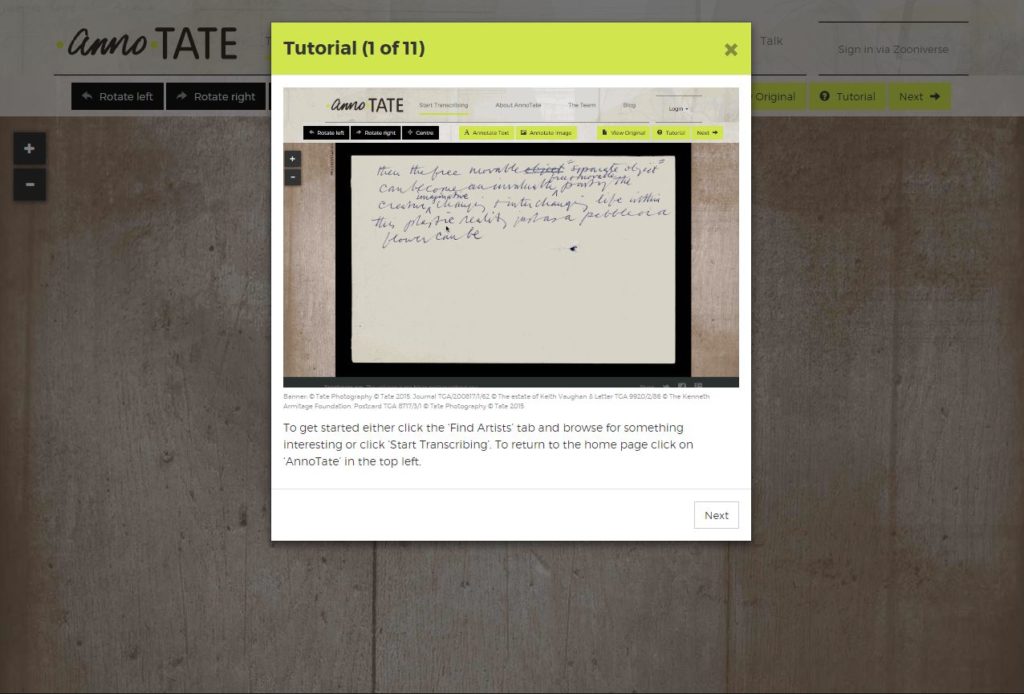
Crowdsourcing resources, knowledge and expertise online has been at the forefront of many archive and library community discussions and is only now becoming more widely accepted across cultural heritage institutions. The concept has taken some time to gain acceptance because it provides access to unique original documents and records to thousands of people without a guaranteed result of accurate metadata tags or transcriptions. Some of you may cry, ‘surely small mistakes in tags or transcriptions can’t matter?’, however one small mistake can condemn a record to oblivion for decades because no-one knows it is there, or how to accurately search for it. Fortunately as technology has improved, so have the software platforms for heritage crowdsourcing projects and there are now several that encourage people globally to become involved in the process of making our history accessible. Some notable projects include:
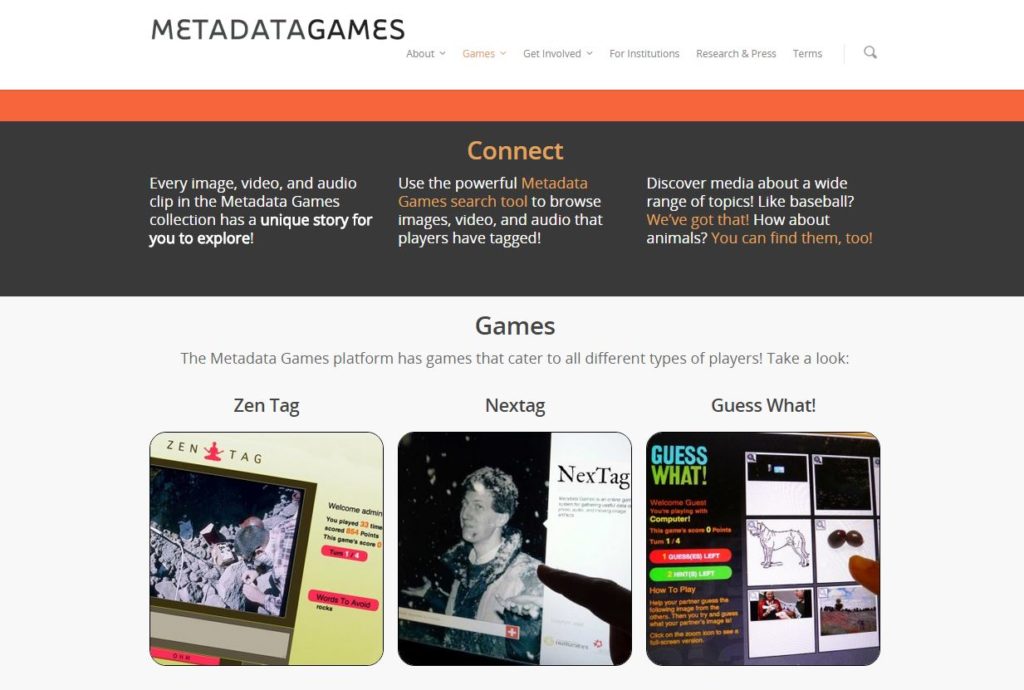
Involved in the gamification of assigning metadata to images (for further information on ‘gamification’ please see additional reading below), it is a free open source crowdsourcing game platform. As a player you assign descriptions and metadata tags to images, video and audio from libraries, archives and museums which makes it easier for the general public and scholars to discover and use these collections. Currently MG hosts over 45 collections from 11 institutions including the British Libary, Digital Public Library of America, The Open Parks Network and more, and contains tens of thousands of media items. You can find out more, and have a go at the game here!
Smithsonian Digital Volunteers: Transcription Center
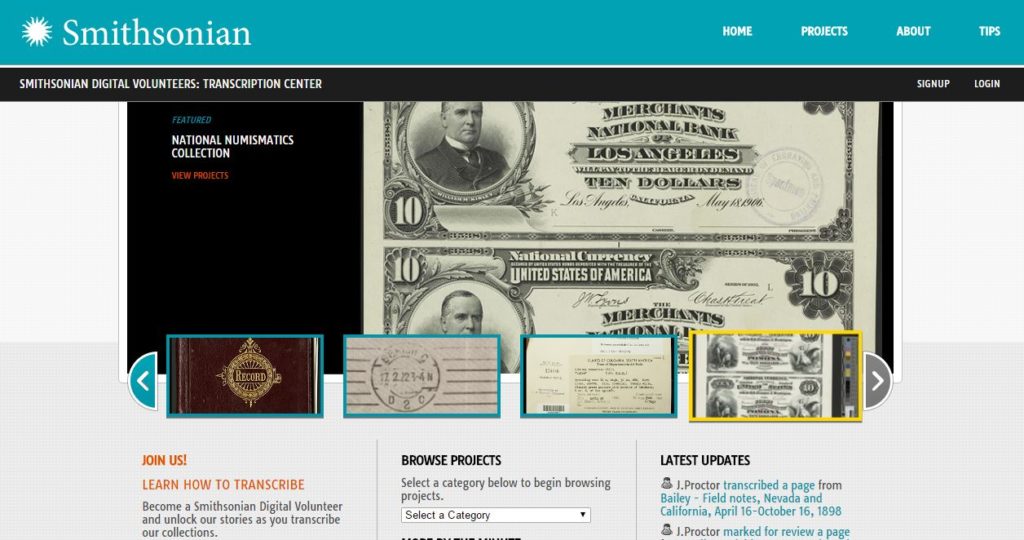
Opening in July 2013 the Smithsonian Transcription Center has thousands of documents originally from across 31 projects from 8 Smithsonian museums, archives and libraries. Looking to engage volunteers digitally the Transcription Center works hand-in-hand with digital volunteers to transcribe historic documents and records to facilitate research. Since its opening and with the help of its volunteers the centre has expanded to include over 900 projects from 13 participating heritage institutions. You can find out more about the centre on their website here.
The National Archives: Operation War Diary
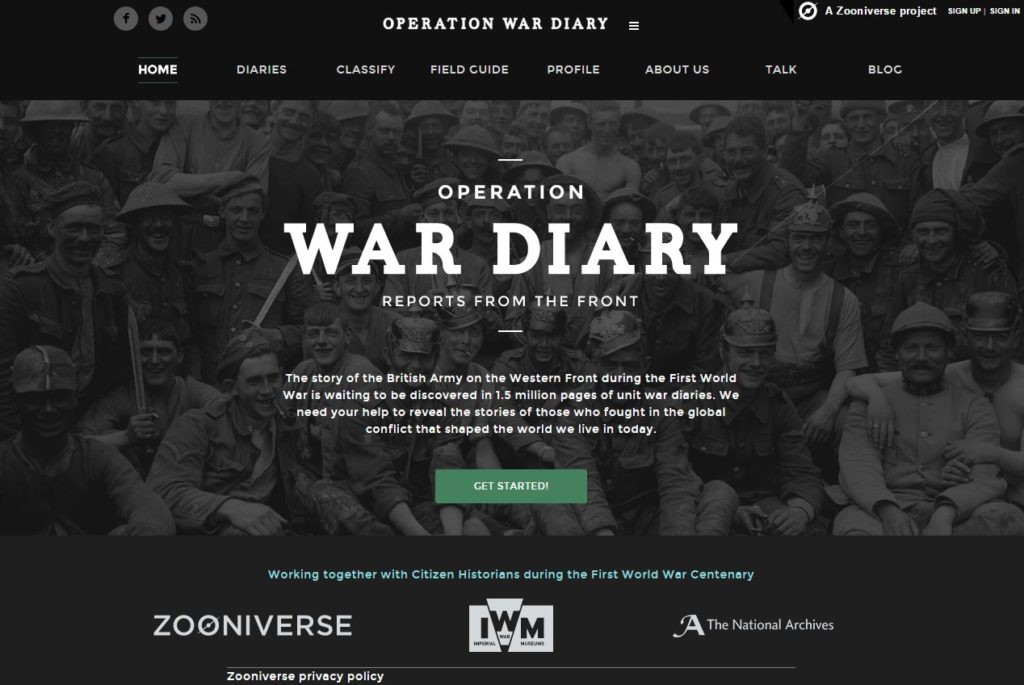
Operation War Diary aims to open up the information that is currently hidden within war diaries in the TNA by asking volunteers to tag any date they find, such as places mentioned, activities or people. While the TNA knows basic information about these records – such as the date ranges and what army units people were from – they do not know the intimate details about the people recorded within these diaries and their experience of fighting on the front line during the war. You can read about and get involved with Operation War Diary here.
Resources Used
TATE, Archives & Access Project: AnnoTate – crowdsourcing to transcribe the Archives
TATE, Archives & Access Project: AnnoTate and online transcription
Daily Zooniverse, New Project – AnnoTate
Phaidon, Help the Tate uncover art history secrets
Library of Congress, The Metadata Games Crowdsourcing Toolset for Libraries & Archives: An Interview with Mary Flanagan, by Trevor Owens
School of Computer Science, University of Pittsburgh USA, Labeling Images with a Computer Game, by Luis von Ahm and Laura Dabbish
The National archives, Operation War Diary – your archive needs you!
Additional Reading
The National Archives, Managing Information: are you game?, by Ron Johnson
Computers in Libraries: The Digital Archivist, Crowdsourcing Cultural Heritage: ‘Citizen Archivists’ for the Future, by Jan Zastrow
